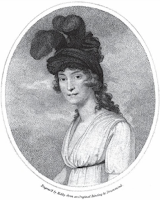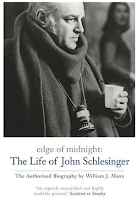
Greta Lovisa Gustafsson was born in Stockholm on 18 September 1905 into a working class family. She left school at 13, and looked after her ill father. He died in 1920. Thereafter, she worked briefly in a barber’s shop, before taking a job in the PUB department store. Before long, she was modelling hats, and had secured more lucrative employment as a fashion model. In late 1920, she appeared in her first film commercial for the store, advertising women’s clothing. She made further advertising films, but, in 1922, the director Erik Arthur Petschler gave her a part in his short comedy, Peter the Tramp. From 1922 to 1924, she studied at the Royal Dramatic Theatre’s acting school in Stockholm; and it was during this period that she changed her name to Garbo.
The prominent Swedish director Mauritz Stiller recruited Garbo in 1924, and nurtured her for his films; but she then caught the eye of MGM’s Louis B. Mayer who asked her - still only 20 and unable to speak English - to come to the US. Once there, she and Stiller heard no word from Mayer, but eventually MGM’s head of production Irving Thalberg gave Garbo a screen test, and she was cast in Torrent. Stiller was hired to direct the next film for Garbo, The Temptress, but was soon fired. Garbo received rave reviews and went on to make eight more silent movies, turning her into a Hollywood star. John Gilbert, with whom she had an affair, was her co-star in several of these films, and is said to have taught her how to behave like a star, how to socialise at parties, and how to deal with studio bosses.
Despite concerns about her Swedish accent, she proved as much of a success when, from the early 1930s, MGM started making sound movies. Her first talkie, Anna Christie, was the highest grossing film of the year, and led to her first Oscar nomination. By 1933, she had negotiated a new contract with MGM, earning her $300,000 per film. Garbo continued to work, starring in films such as The Painted Veil, Anna Karenina, Camille and her first comedy, Ninotchka. With the success of Ninotchka, MGM chose another comedy, Two-Faced Woman, to be directed by George Cukor (who had directed Camille). This was not a critical success, and the negative reviews deeply affected Garbo. Although not intending to retire, in fact, she never made another film. Many a project was offered her in the 1940s, and she accepted some, but every one of them fell through.
Garbo never married or had children, though she had various affairs with men and women. Among these were the conductor Leopold Stokowski, the author Erich Maria Remarque, the photographer Cecil Beaton, and the poet Mercedes de Acosta. Her relationships with the latter two, in particular, have given rise to books: Greta & Cecil by Diana Souhami and Loving Garbo: The Story of Greta Garbo, Cecil Beaton and Mercedes de Acosta by Hugo Vickers (both published by Jonathan Cape, 1994).
From the early days of her career, Garbo avoided society, preferring to spend her time alone or with friends. She never signed autographs or answered fan mail, and rarely gave interviews. In 1951, she became a naturalised US citizen, and in 1953 bought an apartment in Manhattan where she lived for the rest of her life. She became increasingly withdrawn in time - though she would occasionally take holidays with friends - and was known for walking the city, dressed casually and wearing large sunglasses.
According to the 1979 edition of Encyclopaedia Britannica ‘Garbo had, in the opinion of her directors and most critics, a perfect instinct for doing the right thing before the camera. Her talent, her great beauty, and her indifference to public opinion made her career unique in the history of the cinema.’ She died in 1990. Further information is available from Wikipedia, the ‘Official Garbo website’, the fan site Garbo Forever, or the online Encyclopædia Britannica.
There is no evidence I can find of Garbo ever having kept a diary. However, she was the subject of other people’s journals, and, in particular, the memoir published by de Acosta (Here Lies the Heart) and the diaries published by Beaton. She considered herself betrayed by both ex-lovers for making public such intimate details. Beaton, himself, appeared fully conscious of the hurt he might cause to Garbo by publishing his diaries - though it wasn’t until he was long dead that some of his diaries were published in an expurgated form - see Nerves before a sitting. She also features in diaries kept by Remarque, but these have yet to be published and only short quotes about Garbo have appeared (in Great Garbo: A life apart, by Karen Swenson, for example).
Beaton’s diaries - especially those from the 1940s published as The Happy Years - are full of Beaton’s obsession with Garbo. A New York Times review says: ‘The core material for Loving Garbo was drawn from Beaton’s diaries and letters, in which he recorded his impressions of Garbo in minute detail, along with every seismic tremor of their relationship. Although Beaton’s encomiums to Garbo’s cheekbones and extra-thick eyelashes betray a rhapsodic giddiness, his writing never loses its undertone of shrewdness and common sense. And much as he may adore Garbo, he repeatedly evokes her as an object to be coveted for its social and economic value.’
Here are a few extracts about Garbo in Beaton’s diaries taken from published sources - the first two from Loving Garbo, the second two from Beaton in the Sixties, and the last from The Unexpurgated Beaton.
3 November 1947
‘I was completely surprised at what was happening & it took me some time to recover my bafflement. Within a few minutes of our reunion, after these long & void periods, of months of depression & doubt, we were suddenly together in unexplained, unexpected and inevitable intimacy. It is only on such occasions that one realises how fantastic life can be. I was hardly able to bridge the gulf so quickly & unexpectedly. I had to throw my mind back to the times at Reddish House when in my wildest dreams I had invented scenes that were now taking place.’
October 1956
‘She is like a man in many ways. She telephoned to say, I thought we might try a little experiment this evening at 6.30. But she spoke in French and it was difficult to understand at first what she meant. But soon I discovered, although I pretended not to. She was embarrassed and a certain pudeur on my part made me resent her frankness and straightforwardness - something that I should have respected.’
July 1965
‘I arrived at Vougliameni, the appointed bay where the yachts were harboured. Greta was the first I saw, sitting with her back to the quay, she had tied her haired back into a small pigtail with a rubber band. The effect was pleasing, neat and Chinese but the hair has become grey. The surprised profile turned to reveal a big smile. It was almost the same, and yet no, the two intervening years since we’ve last met have created havoc. I was appalled how destroyed her skin has become, covered with wrinkles, double chin, but worse the upper lip has jagged lower and the skin has perished into little lines, and there is a furriness that is disastrous. But no sign of defeat on Greta’s part. She was up to her old tricks. ‘My, my, my! Why can it be Beattie? Me Beat!’ [. . .]
In the apricot-colored light of the evening she still looks absolutely marvellous and she could be cleverly photographed to appear as beautiful as ever in films. But it is not just her beauty that is dazzling, it is the air of mysteriousness and other intangible qualities that make her so appealing, particularly when talking with sympathy and wonder to children or reacting herself to some situation with all the wonder and surprise of childhood itself.’
August 1965
‘The evening sunlight fading to make the colours hum more and more melodiously was a pleasure to us all. Greta did not seem to notice the magical effects, of which she in pink with pink and white striped trousers became a part and in this light she became as beautiful as her legend. But it is a legend that does no longer exist in reality. If she had been a real character she would have left the legend, developed a new life, new interests and knowledge. As it is, after thirty years she has not changed except outwardly, and even the manner and personality has dated. Poor old Marlene Dietrich, with her dye and facelift and new career as a singer, with all her nonsense, is a live and vital person, cooking for her grandchildren and being on the go. That is much preferable to this other non-giving, non-living phantom of the past.’
13 April 1973 [source: The Unexpurgated Beaton - The Cecil Beaton Diaries as they were written]
‘The day was not without its setbacks. Whether or not it was out of malice a commentator, after a radio interview, gave me a review of my book by - of all people - Auberon Waugh, the son of my old arch enemy. He seems to have inherited the spleen of his father. A devastating attack aimed to reduce me to a shred. It hurt. Then a horrid little woman journalist, referring to it, said, ‘You’re supposed to be a marvellous person, but they say your book is awful’ and she handed me Waugh’s review. [. . .] I do feel terribly guilty about exposing Garbo to public glare. Even though those things happened thirty years ago, my conscience has been pricking me terribly. Yet I know that if I had the option of not publishing it, I would still go ahead - and suffer. I only trust Greta can rise above it in the way she did about Mercedes’s book.’









